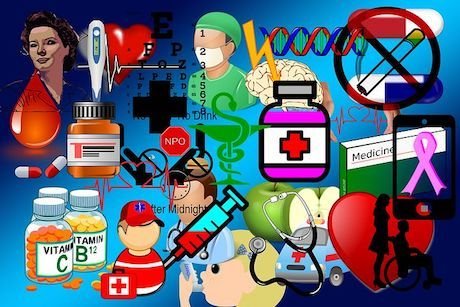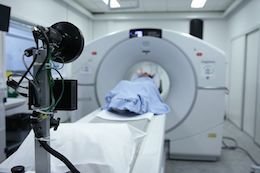Hospitalism

Hospitalism was a common name used when referring to the infections, death, and psychological trauma experienced in hospitals and asylums in our modern day hospital systems infancy. Today the hygiene protocol as well as attention to psychological well being in modern hospitals and psychological institutions are linked back to the dirty, cruel, and overcrowded health institutions for the common people. Maybe that is why many people have a fear of hospitals and medical institutions, it is an epigenetic memory. A book in 1898 highlights the awful conditions that endangered the life of vulnerable people.
"The town free from infection; the hospital saturated by it, to such an extent as to induce its own surgeons to recommend their patients not to enter it, to compel them to refrain from operating, and, after every attempt that science and humanity could suggest—every hygienic means employed in vain in the fruitless attempt to eradicate the pestilence from the “very fabric” itself—to cause the governors, as a last resource, to decide on the demolition of the building and its complete reconstruction, at great expense, as the only remedy. "
John Eric Erichsen, “On Hospitalism and the Causes of Death After Operations,” Society of the New York Hospital, March 1898, p. 98
A 1977 analysis of the effect of medical intervention on the decline of deaths in the Unites States since 1900 how little medical measures had to do with the decline of disease.
"In general, medical measures (both chemotherapeutic and prophylactic) appear to have contributed little to the overall decline in mortality in the United States since about 1900—having in many instances been introduced several decades after a marked decline had already set in and having no detectable influence in most instances. More specifically, with reference to those five conditions (influenza, pneumonia, diphtheria, whooping cough, and poliomyelitis) for which the decline in mortality appears substantial after the point of intervention—and on the unlikely assumption that all of this decline is attributable to the intervention." Link
"
"It is estimated that at most 3.5 percent of the total decline in mortality since 1900 could be ascribed to medical measures introduced for the diseases considered here. The improvement in hospital safety compared to the 1800s may seem revolutionary. The bad news is that in the year 2000 the Institute of Medicine released a report showing that hospitals and doctors are the third leading cause of death in the United States, only after cancer and heart disease."

The combined effect of errors and adverse effects that occur because of iatrogenic damage not associated with recognizable error include:“12,000 deaths/year from unnecessary surgery
- 7,000 deaths/year from medication errors in hospitals
- 20,000 deaths/year from other errors in hospitals
- 80,000 deaths/year from nosocomial infections in hospitals
- 106,000 deaths/year from nonerror, adverse effects of medications The above numbers are thought to be an underestimate of the actual damage. The modern outpatient setting was also noted to be dangerous in the IOM report.

The analysis found that between 4% and 18% of patients experienced negative effects in outpatient settings. This including 116 million extra physician visits, 77 million prescriptions, 17 million emergency department visits, 8 million hospitalizations, 3 million long-term admissions, 199000 additional deaths, and $77 billion in extra costs. Is US Health Really the Best in the World?” Journal of the American Medical Association

The common belief held today is that vaccines and improved medical practices were responsible for the decline of infectious diseases. Rather than the improvement of allopathic medicine for the common people stastic show hygiene protocols, improved living conditions, waste disposal, safe work environments, nutrition, and natural remedies. Today the emphasis is on antibiotics, vaccinations and invasive, harsh, expensive medical protocols and procedures. I think it’s all about making profit from disease, which the focus is treating disease symptoms and ignoring improving overall health for the general public. Writing this paper I think of the trending page and how certain authors are gaming the system. I think lots of corporations and institutions are gaming our medical system. Why fix the problem when it is profitable for those who run the system?
The unintended consequences of treating symptoms of disease rather than promoting health has caused the human body to lose its protective microorganisms that has left us defenseless against invasive pathogens.

Our view of disease is radically changing with the discovery of epigentics and the human ecosystem that lives within each person and connects us to larger ecosystems around us. The historical focus on pathogens that cause disease is falling by the wayside and these new discoveries will impact the medical and pharmacutal industry. They are fighting tooth and nail to stop symbiotic health protocols that will impact their profits made from managing disease
Warning, Please Read
I will be flagging comment spam at 1% strength. If you keep on spamming my post I will flag you at 100%. I don't care if you have limited English abilities write a couple sentences about this article, no copy-paste please. I will flag: one sentence comments, links to your blog and begging for up-votes and follows. Also I will flag comments that have nothing to do with my blogs article. I will also check your comment section to see if you have been comment spamming on other blogs.


 A link to My Blog
A link to My Blog